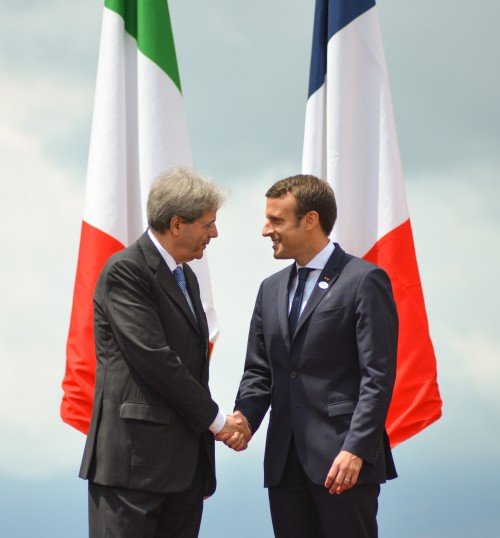
France and Italy are two neighboring countries with a long and complex history. The relationship between the two countries has been characterized by both cooperation and conflict, with periods of intense rivalry and hostility followed by periods of close cooperation and friendship. In this blog post, we will explore the history of French-Italian relations and how it has evolved over time.
The history of French-Italian relations dates back to the Middle Ages, when the two countries were part of the Holy Roman Empire. At that time, the border between the two countries was fluid and often shifted. During the Renaissance period, Italy was the center of cultural and artistic innovation, and France became a major patron of Italian art and culture.
The history of French-Italian relations is a long and complex one that has been marked by periods of cooperation and conflict. The relationship between the two countries dates back to the Middle Ages, when they were both part of the Holy Roman Empire. During this time, the border between France and Italy was fluid and often shifted.
During the Renaissance period, Italy became the center of cultural and artistic innovation, and France became a major patron of Italian art and culture. Many French kings, including Francis I, were patrons of the arts and commissioned Italian artists and architects to work in France.
However, the relationship between France and Italy has not always been smooth. During the 16th century, the French and Italian states fought a series of wars over control of Italy. This period of conflict, known as the Italian Wars, saw French armies invade Italy and establish control over large parts of the country. In response, the Italian city-states formed alliances to resist French aggression.
The 17th and 18th centuries saw the emergence of the Bourbon dynasty in France, which had close ties to the Spanish and Italian royal families. This led to a period of closer cooperation between France and Italy, particularly in the fields of art and culture.
The 19th century saw the emergence of modern Italy as a unified state, and this led to a new phase in French-Italian relations. Italy's new rulers sought to establish friendly relations with France, and the two countries formed an alliance against Germany during World War I. However, the aftermath of the war saw tensions between France and Italy rise once again, as Italy felt that it had not received the rewards it deserved for its contribution to the war effort.
During World War II, Italy initially sided with Nazi Germany, which led to a period of intense hostility between Italy and France. However, after the war, the two countries once again sought to establish friendly relations. The European Union, which both countries helped to found, has played a major role in bringing France and Italy closer together.
Today, France and Italy have a close relationship, with both countries working together on a range of issues, including trade, defense, and culture. French and Italian leaders meet regularly to discuss these issues, and the two countries have established a number of joint initiatives, including the Franco-Italian University and the Mediterranean Union.
In conclusion, the history of French-Italian relations has been marked by both cooperation and conflict over the centuries. However, despite the occasional tensions, the two countries have managed to establish a close relationship based on mutual respect and shared interests. As members of the European Union, France and Italy are working together to build a more united and prosperous Europe, and their relationship will continue to play a key role in shaping the future of the continent.
However, the relationship between France and Italy has not always been smooth. During the 16th century, the French and Italian states fought a series of wars over control of Italy. This period of conflict, known as the Italian Wars, saw French armies invade Italy and establish control over large parts of the country. In response, the Italian city-states formed alliances to resist French aggression.
The 19th century saw the emergence of modern Italy as a unified state, and this led to a new phase in French-Italian relations. Italy's new rulers sought to establish friendly relations with France, and the two countries formed an alliance against Germany during World War I. However, the aftermath of the war saw tensions between France and Italy rise once again, as Italy felt that it had not received the rewards it deserved for its contribution to the war effort.
During World War II, Italy initially sided with Nazi Germany, which led to a period of intense hostility between Italy and France. However, after the war, the two countries once again sought to establish friendly relations. The European Union, which both countries helped to found, has played a major role in bringing France and Italy closer together.
Today, France and Italy have a close relationship, with both countries working together on a range of issues, including trade, defense, and culture. French and Italian leaders meet regularly to discuss these issues, and the two countries have established a number of joint initiatives, including the Franco-Italian University and the Mediterranean Union.
In conclusion, French-Italian relations have been marked by both cooperation and conflict over the centuries. However, despite the occasional tensions, the two countries have managed to establish a close relationship based on mutual respect and shared interests. As members of the European Union, France and Italy are working together to build a more united and prosperous Europe, and their relationship will continue to play a key role in shaping the future of the continent.








